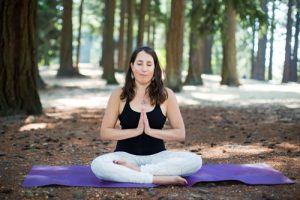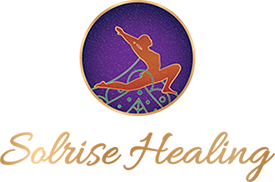Meditation
 The Benefits of Meditation
The Benefits of Meditation
In my yoga classes, as well as my Ayurvedic 12-week program, I teach various types of meditations to support your optimal well-being and your individual constitution. According to Swami Sivananda, “Without the help of meditation, you cannot attain knowledge of self. Without it, you cannot liberate yourself from the trammels of the mind.”
In my experience of having had a consistent meditation practice for the last 14 years, I believe that it provides a road to freedom from the mental bondages of the ego. Without its aid, you cannot grow into your true self, your essential nature. Rather than living a life based on entanglement of patterns, which the yogis call karma, with meditation, you can live a life based on destiny or dharma. Your destiny or dharma is your highest purpose and when you fulfill your highest purpose, you can experience deep fulfillment and authentic joy of being alive.
Brain science shows that stress shuts down the frontal lobe, and inhibits higher-order thinking. The reptilian brain is active when you’re stressed, turning on your reactive, fearful and addictive tendencies. When you meditate, the blood flow moves from the reptilian brain to the prefrontal cortex or the frontal lobe. This movement shifts you from being reactive to receptive, from impulsive and anxious to clear and kind, from compulsive to creative. Meditation builds brain cells, increases grey matter and allows the brain to slow responses to stress, providing better concentration, learning and memory. This practice thickens the parts of your brain that make better decisions and takes you out of fight, flight or freeze response.
By sitting quietly and diving deep within, you can connect with your deepest self. There are a variety of mediation styles and typically one of the big “whys” behind meditation is to calm the mind by daily observation of it. The many other benefits of meditation include the following:
- Improve focus, concentration and precision
- Enhance the quality of your relationships and communication
- Enhance your mental clarity
- Experience inner peace and feel calmer
- Master stress by responding mindfully to it rather than reacting negatively to it
- Strengthen intuition, self trust, and insights
- Awaken you authentic nature, connect with your heart and with the things that truly matter to you.
- Increase inner strength and resilience to adapt to changes in life
- Improve reaching your goals by becoming more disciplined and also learning how to visualize them.
- Deepen your intelligence by sharpening your mind
- Feel more self-confident and self-assured
- Reducing blood pressure
- Boosting immune system
- Decreased inflammation
- Improved digestion
- Emotional balancing
Here are 4 simple steps to begin a mindfulness meditation practice by Robert W. Roeser, Professor of Psychology and Human Development at Portland State University
- Breathe deeply (inhale and exhale slowly).
- Be here now.
- Let go of thoughts.
- Start again.
Meditation training is embedded in my 12-week Awaken Your Best Self Ayurveda Program.
